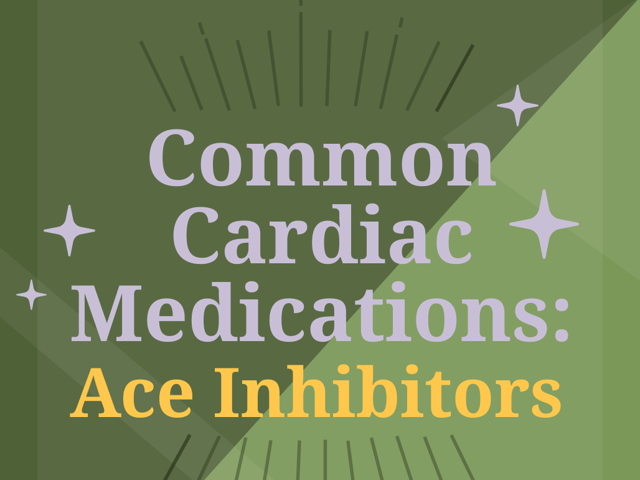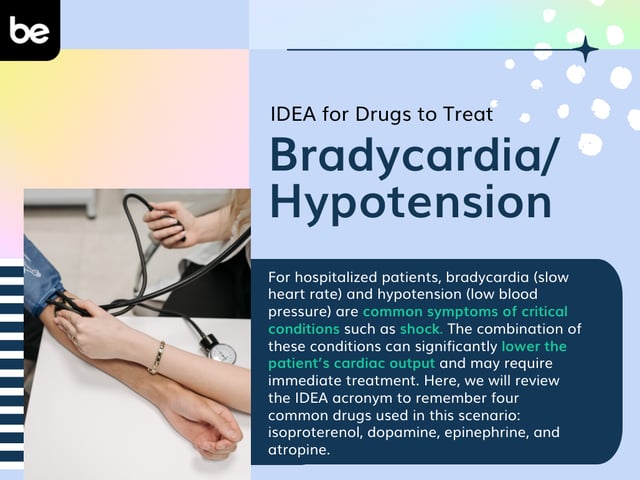
Common Cardiac Medications: ACE Inhibitors
With the wide variety of cardiac conditions that have become common, it is very likely you will come across a number of cardiac medications. This article is the first in a series that will focus on the three most common medications with cardiac-specific mechanisms of action, ACE Inhibitors, Calcium Channel Blockers, and Beta Blockers.
You can access information on the other two types here:
How ACE Inhibitors Work
ACE Inhibitors (angiotensin converting enzyme inhibitors) are blood pressure medications that work by expanding blood vessels by preventing the conversion of angiotensin I to angiotensin II, as their name suggests. When these blood vessels are widened, the workload of the heart decreases, the volume of blood the heart pumps increases, and overall blood pressure decreases.
The Drug Names
The generic forms of these drugs usually end in -pril and they come in various brand names:
| Generic | Commonly-Used Brand Name |
| Lisinopril | Prinivil™, Zestril™ |
| Captopril | Capoten™, Captoril™ |
| Benazopril | Lotensin™ |
Dosage and Monitoring
The dosages for these medications vary, but they usually are oral pills that patients can take easily at home. Patients should monitor their blood pressure while taking these medications, and some patients may need to have their kidney function tested.
Side Effects
The most common side effect of ACE Inhibitors is a dry, non-productive cough. ACE Inhibitors will also cause the patient to retain potassium, so patients should be careful with sodium and potassium supplements, which will add to the buildup of these elements in the body. Too much potassium can be life threatening.

Keep Reading

National Council Licensure Examination-Registered Nurse Blog
What to Expect in Nursing School Clinicals
The clinical experience is a rite of passage for all nursing students, …

National Council Licensure Examination-Registered Nurse Blog
What is the NCLEX Next Generation (NGN) Exam?
If you’re interested in becoming a registered nurse, you likely know th…

National Council Licensure Examination-Registered Nurse Blog
IDEA for Drugs to Treat Bradycardia/Hypotension
For hospitalized patients, bradycardia (slow heart rate) and hypotensio…